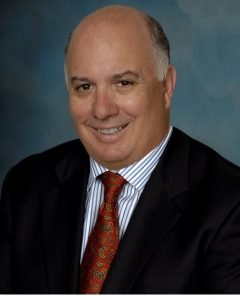Paul A. Welling
 PAUL A. WELLING, MD, was recruited to the Johns Hopkins University School of Medicine in a national search for the Joseph S. and Esther Handler Endowed Professorship of Laboratory Research in Nephrology. Dr. Welling was previously at the University of Maryland School of Medicine where he began his career as Assistant Professor (1993) and rose up the ranks to become the Director of the Maryland Center for Kidney Discovery and a Professor of Physiology. He received his medical degree from the University of Kansas and completed his post-doctoral training at Yale University School of Medicine. Dr. Welling is an internationally recognized authority on the molecular bases of potassium and sodium balance, electrolyte disorders and hypertension.
PAUL A. WELLING, MD, was recruited to the Johns Hopkins University School of Medicine in a national search for the Joseph S. and Esther Handler Endowed Professorship of Laboratory Research in Nephrology. Dr. Welling was previously at the University of Maryland School of Medicine where he began his career as Assistant Professor (1993) and rose up the ranks to become the Director of the Maryland Center for Kidney Discovery and a Professor of Physiology. He received his medical degree from the University of Kansas and completed his post-doctoral training at Yale University School of Medicine. Dr. Welling is an internationally recognized authority on the molecular bases of potassium and sodium balance, electrolyte disorders and hypertension.
Dr. Welling’s laboratory is internationally recognized for elucidating how ion transport molecules in the kidney control salt balance and discovering how these molecules go awry in kidney diseases and disorders of electrolyte homeostasis and blood-pressure. His group employs a multidisciplinary approach that includes gene discovery, genomic approaches, “cells on a dish,” genetically engineered mouse models and translational studies in humans. His research is renowned for translating genetic discoveries to mechanistic understandings of kidney function and pathology. In recent years, Dr. Welling has focused on developing a molecular understanding of the relationship between sodium and potassium diet, inherited susceptibilities of hypertension and kidney disease. His work has resulted in seminal publications and has transformed our understanding of kidney physiology and disease.
Dr. Welling is the recipient of many important awards, including the Carl W. Gottschalk Distinguished Lectureship from the American Society of Physiology and the Donald Seldin Award from the American Heart Association, which are considered amongst the highest honors in Kidney Physiology and Hypertension Research. Dr. Welling currently serves as Principal Investigator on three NIH-funded Research Project Grants and is Co-Director of the Baltimore Polycystic Kidney Disease Center. He is also the North American Coordinator and Principal Investigator on a prestigious Transatlantic Network of Excellence grant from the Leducq Foundation to study potassium in hypertension.
Dr. Welling has a wealth of experience training medical and graduate students, post-doctoral fellows and junior faculty in his own laboratory and was the founding Graduate Program Director of the Physiology Track in Molecular Medicine. Nearly all of his past graduate and post-graduate mentees have become successful professionals and leaders with scientific careers in government, industry, and academia. His skills with teaching and mentoring were recognized by Graduate Program in Life Sciences with Teacher of the Year Award.
Dr. Welling serves in many leadership and scientific advisory roles. He was Secretary of the historic Salt and Water Club and chair of the Epithelial Transport Group for the American Society of Physiology. Currently, he is a chair of the NIH study section, Kidney Molecular Biology and Development, and chair of the American Physiological Society Finance Committee. He is a Fellow of the American Heart Association (AHA) and is an elected Fellow of American Association for the Advancement of Science and was recently elected into the Association of American Physicians.
Dr. Welling has distinguished himself as a leader in Kidney Physiology and Nephrology laboratory research through internationally recognized scholarship, mentoring, service, and research. He translates his research into a broad understanding of physiology, disease mechanisms and to the education of medical and graduate students, residents, fellows, and junior faculty. Dr. Welling’s commitment to develop, apply and teach innovative, cutting-edge research strategies with a high level of rigor to solve important biomedical problems marks his entire career as an outstanding researcher, colleague and mentor. As a young scientist, Dr. Welling was deeply inspired by Dr. Handler’s cutting-edge research in cellular and biochemical bases of kidney physiology, so he is especially grateful and honored to be the recipient of the Joseph S. and Esther Handler Professorship.